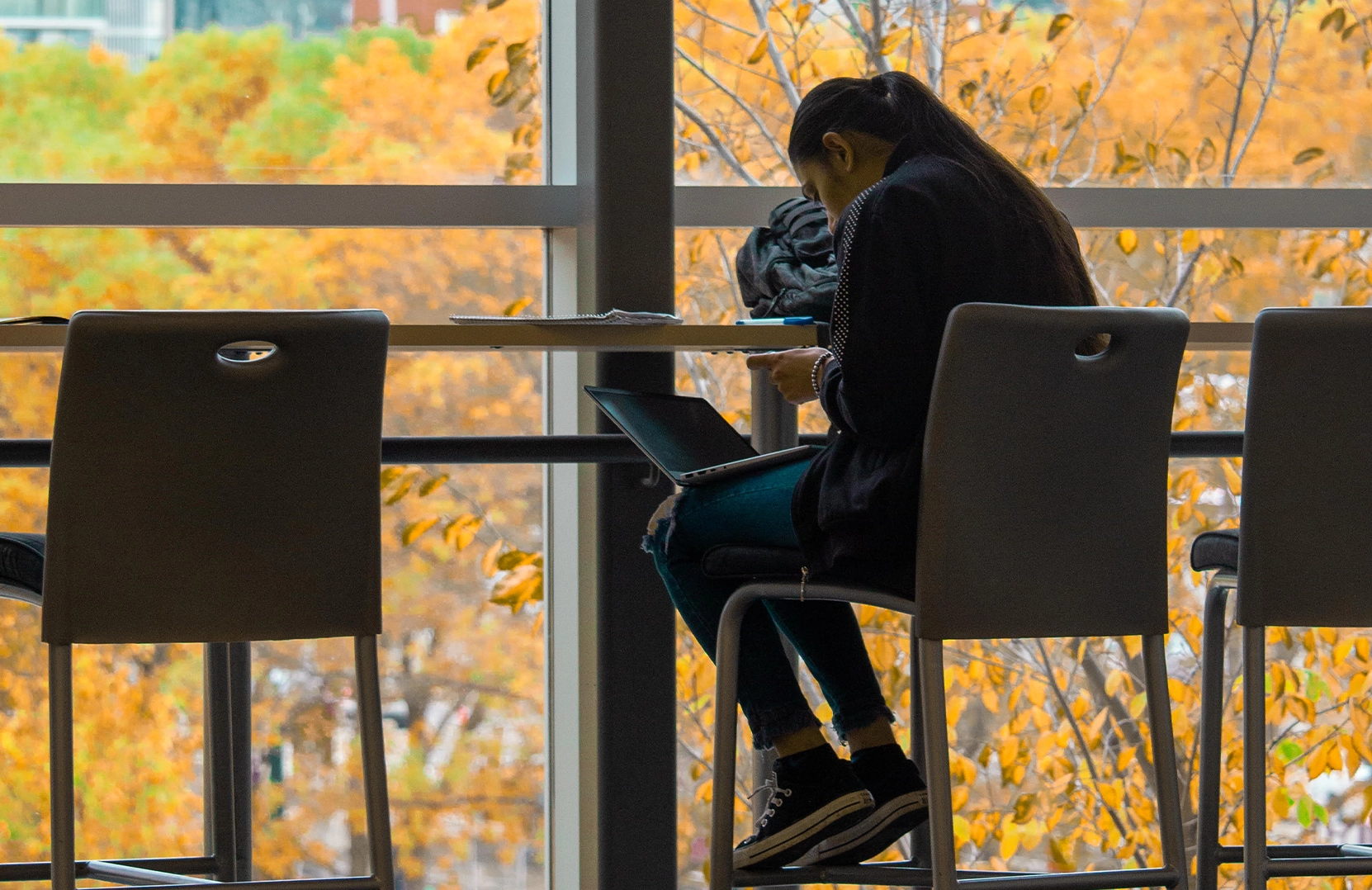Everything you need to know about the possible cut
MacEwan’s academic governing body, the General Faculties Council (GFC), will vote this month on whether or not to remove the fall reading break for 2025-26 and eliminate the need for Sunday exams.
GFC is comprised of 58 voting members, including university executive leadership, faculty, and student representatives, and is responsible for ensuring programs meet their minimum requirements. The vote is expected to take place at GFC’s Oct. 28 meeting.
“We believe that the fall reading break should be kept, at the very least, this next academic year.”
Darcy Hoogers, SAMU vice president (academic)
As it stands, the university says it needs to maintain a certain number of instructional hours for programs to remain credible and is running out of time to run exams as the institution grows its number of students and programs.
Instead of starting the fall semester earlier or the exam period bleeding further into winter break, GFC is voting to axe fall reading week to free up space.
At the same time the Grant MacEwan Faculty Association (GMUFA), which is the labour association that represents MacEwan faculty, is awaiting arbitration for a grievance about Sunday work in its collective agreement with the university. The current agreement defines “work days,” which doesn’t include Saturdays, Sundays, and statutory holidays.
Mental health is a main focus
Ahead of the vote, both the MacEwan leadership and SAMU say student mental health is at the centre of talks around the academic calendar. The full fall reading break was implemented in Nov. 2020.
Darcy Hoogers, SAMU vice-president (academic), says axing fall reading week so suddenly would be detrimental to students who expect a break and would “deviate from the standard.”
“We believe that the fall reading break should be kept, at the very least, this next academic year [2025-26],” says Hoogers, before adding that he’s been disappointed with the lack of student consultation on the issue.
“It doesn’t appear that this decision is being made with long-term implications considered and how it might affect whether or not students will even choose to go MacEwan.”
Darcy Hoogers
While the decision has already been voted through by two sub-committees, on which Hoogers sits, he’s hoping the vote at the GFC will yield a different result.
“The time frame in which this is being repealed is quite concerning, given how recently we just got a reading week,” Hoogers says.
To keep reading week while still making more space in the schedule, Hoogers proposes that GFC should consider starting before Labour Day or allow for three exam sittings per day during the exam period.
Many other universities have graduate students who work as TAs who supervise exams, Hoogers also suggests MacEwan could do something similar.
“It used to be, ‘How many more contact hours than the minimum can we fit in? Now it’s, ‘How close are we getting to not actually having enough hours for the program to be validated?’”
Craig Monk, MacEwan provost
MacEwan’s provost, Craig Monk, says other options, such as stretching out the academic calendar before Labour Day or further into winter break, would be even worse for students’ mental health.
Monk explains that starting before Labour Day poses its own challenges for students who work summer jobs or may need to secure housing an additional month in advance. Finishing later could delay marks and force the semester’s anxieties into the winter break or prevent students from having their prerequisite classes in time for January.
“Maintaining those two bookends is, to me, the best outcome,” Monk says.
GMUFA bargains, faculty hold majority vote
While SAMU and other students on GFC are expected to vote to keep reading week — the decision will likely come down to faculty members who make up the majority of votes on GFC.
Bob Graves, president of the GMUFA, says the current grievance with the university represents a growing issue of “workload creep” for faculty.
“We’re trying to put a stop to this kind of creep of responsibility,” Graves says before adding that this doesn’t mean the faculty association is outright opposed to Sunday work.
“We’re trying to put a stop to this kind of creep of responsibility.”
Bob Graves, President of GMUFA
“I don’t think that we’ve got an objection to the idea of scheduling exams on Sundays, but there needs to be some kind of accommodation within the collective agreement to allow for that to happen.”
Graves hopes that the negotiating table can find a resolution before arbitration.
Regarding the potential tradeoff between Sunday exams and fall reading break, Graves acknowledges that the break plays a role in students’ mental health and that many faculty are sensitive to the issue.
“Doing things to support students, support student learning. That is a very persuasive argument for many faculty.”
Erosion of instructional hours, flexibility
The fall reading break has been in place in its five-day form since it was voted for by the GFC in 2020. At the time, students advocated for a 2-day increase to the November break due to concerns about mental health, while the university found “overwhelming support” among employees and students.
However, even more instructional hours have been struck from the calendar since then.
National Day for Truth and Reconciliation on Sept. 30 has taken away an additional day of class time. While enthusiastic about having a day for additional programming for truth and reconciliation, Monk says it also adds another break period for students.
“Maintaining those two bookends is, to me, the best outcome,”
Craig Monk, MacEwan Provost
While this isn’t a new conversation for academic governance, one thing that worries the provost is how much time instructors are losing.
“We have limited the amount of flexibility within the term for individual instructors,” Monk says. Without wiggle room in the semester, instructors may not have the time to adjust, adapt, or tailor their courses as they best see fit for that specific class of students.
No Guarantee on Sunday Exams
Both Hoogers and Monk acknowledge that even if Sunday exams are dropped for 2025-26, they are likely to return eventually. Monk says it’s important the university doesn’t over-commit and under-deliver.
“I couldn’t say for certain that when we are 30,000 students in 2030 with a number of different courses, that that would mean that we would never have to go back to Sunday exams again,” Monk says.
Hoogers calls it a logistics and communications issue where, regardless of how much faculty and students lose, Sunday exams may just come “creeping back.”
What you need to know:
- With fall reading week being added in 2020, another non-instructional day added in 2022, and an increase in students and courses — MacEwan is running out of time to run exams while keeping enough instructional hours for courses.
- At the same time, Grant MacEwan University Faculties Association, which represents faculty working at MacEwan, says it’s trying to stop an increasing workload for faculty by resisting Sunday exam schedules.
- A MacEwan council will vote on whether or not to cut fall reading week for 2025/2026 while also dropping Sunday final exams.
- Even though some students sit on that council, SAMU wishes there was more student consultation.
Photo by Amanda Erickson





It is clear MacEwan as an institution does not care nor listen to their student body. It is honestly so shady to get rid of this break that students only just fought for. I cannot wait to see MacEwan’s enrollment numbers go down if the removal of reading week is implemeted.